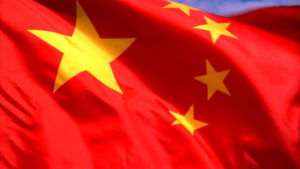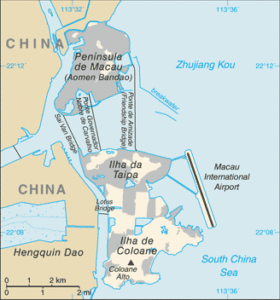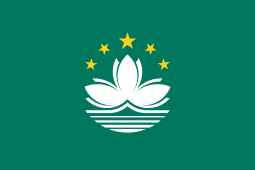
Hong Kong, as a former British trading colony, has a long history of familiarity with English, and recent affinity for French wine. A high cost, seaside city of 7.1 million, populated with 92% aging Han Chinese (and 4% largely Filipino and Indonesian foreign domestic helpers), HK’s main role today is to serve about 55-60 million visitors/year, of which 75% are from mainland China. Wines of South Africa (WOSA) has an experienced market representative, Ms. Michaela Stander, stationed in Hong Kong. She is highly capable, well respected, and knows the market and its participants quite well. In Michaela’s considered opinion, HK has major value as a cultural/style trend setter for the rest of the PRC as well as much of Asia. Today, unfortunately, RSA wine reportedly has (at most) a 1.5% market share in HK, and therefore its visibility is minimal.
Above all else, Hong Kong for the past 7 years has been ranked the least affordable city in the world. Home prices have nearly tripled over the past 10 years. Twenty years ago HK’s GDP was 18% of China’s; now it is 3%. It’s port, once the world’s busiest, has slipped to fifth place. Older hotels are being converted into offices due to escalating rents: in Central, leasing office space is about $16/sq. ft per MONTH, up 6% from a year ago and expected to go 10% higher. The Central office vacancy rate is a very low 1.8%, due in largest part mainland China firms opening HK offices. Prime rents are double those of London’s West End and Mid-town Manhattan, already fifth and sixth in the world. (With an increasing cost of living, we believe many locals will like to enjoy more affordable, high quality wine, and those in the food and beverage industry can favorably influence the tourist contingent as well.)
 Not surprisingly, the French recognize Hong Kong is as a key Champagne market. In 2016, Hong Kong ranked second in Asia and 14th worldwide among export markets for Champagne. How to make headway against the French wine dominance, therefore, and increase RSA wine market share in HK, and its visibility is the key question. With 80% of the HK population transient at any given time, gaining attention is a major challenge (for any wine region other than France). Certainly people on vacation or business are not spending much time absorbing local media offerings. Therefore, it appears to us that the approach must be via restaurants, hotel bars, upscale retail outlets, and perhaps coordination with Internet travel agencies.
Not surprisingly, the French recognize Hong Kong is as a key Champagne market. In 2016, Hong Kong ranked second in Asia and 14th worldwide among export markets for Champagne. How to make headway against the French wine dominance, therefore, and increase RSA wine market share in HK, and its visibility is the key question. With 80% of the HK population transient at any given time, gaining attention is a major challenge (for any wine region other than France). Certainly people on vacation or business are not spending much time absorbing local media offerings. Therefore, it appears to us that the approach must be via restaurants, hotel bars, upscale retail outlets, and perhaps coordination with Internet travel agencies.
Over the past six months, according to Wine Intelligence, 48 per cent of Chinese imported wine drinkers bought wine online, with eCommerce “vital” to Chinese wine trade, driven by recommendations and lower prices. An optimal long term approach to the Chinese wine consumers unfamiliar with RSA wines may be first through Internet contact with their “influencers,” such as PRC based bloggers/journalists, who then encourage HK consumer visits to include specific “imported wine tasting rooms/venues,” and thereby encouraging continuing consumer wine sales made via online purchasing/eCommerce. None of this will be easy, or initially profitable, but little in business is.
All else aside, HK has some attractive aspects insofar as entering the Chinese wine market. First, since 2008, there are no tariffs, import duties, or Value Added Tax (VAT)on wine. Since the combination of these costs approaches 50% in the PRC, it is relatively inexpensive to import to Hong Kong, and no country has an advantage over another. Secondly, there are no country-specific labeling laws such as apply in mainland China so that is an advantage for low volume, marketing startups. On the other hand, temperature controlled warehousing is expensive and HK is quite warm most of the year as it is only 17 degrees North of the Equator.
Not explicitly considered heretofore is the value of increased HK/Chinese tourism to the RSA Winelands and how it might be promoted in HK (and nearby Macau). Tourism increases are difficult to inspire and gauge but potentially very significant for South Africa. In conjunction with a proposal to promote retail awareness of RSA wine in HK, perhaps others will suggest ways to promote travel to the Mother Country and measure increased tourism. Developing a base line of flights to Johannesburg from HK and other PRC cities, and then measuring the annual increase in traffic, if there is one, might be a viable approach.
Further, if West Cape Tourism is willing to do any advertising in HK, and via the Internet, there may be possible tie ins with a proposed HK wine tasting program and with, for example, www.Ctrip.com , China’s biggest online travel site. Important to note, Ctrip.com is challenging Priceline.com to become the world’s largest travel platform. Notably, Ms. Jane Jie Sun, Ctrip.com’s CEO, has been quoted as saying that after the Chinese buy a house and a car, they want to travel. There must be real potential for increasing Chinese “wine tourism” to the Cape Winelands and the rest of South Africa, and promoting such awareness in Hong Kong’s transient population might be the best start.
 Any discussion of HK without considering Macau/ Macao, the former Portuguese colony 40 miles across the water from HK, would be an oversight. Macau is a Special Administrative Region of China, just like HK but much smaller; with a population of 650,900 living in an area of 30.5 km2 (11.8 sq mi), it is the most densely populated region in the world. However, because Macao is the only place in Greater China where it’s legal to operate a casino; accordingly, gambling and tourism became the largest sectors of Macao’s economy and Tourist arrivals in 2016 exceeded 30 million. Since 2006, its gaming revenue has been the world’s largest.
Any discussion of HK without considering Macau/ Macao, the former Portuguese colony 40 miles across the water from HK, would be an oversight. Macau is a Special Administrative Region of China, just like HK but much smaller; with a population of 650,900 living in an area of 30.5 km2 (11.8 sq mi), it is the most densely populated region in the world. However, because Macao is the only place in Greater China where it’s legal to operate a casino; accordingly, gambling and tourism became the largest sectors of Macao’s economy and Tourist arrivals in 2016 exceeded 30 million. Since 2006, its gaming revenue has been the world’s largest.

Macau is among the world’s richest regions, and as of 2015 its GDP per capita by purchasing power parity is higher than that of any country in the world, according to the World Bank. Further, there are no sales taxes, import tariffs, or Value Added Tax (VAT) in Macau. Accordingly, Macau may have perhaps 50% or greater the potential for wine sales as exists in HK.
